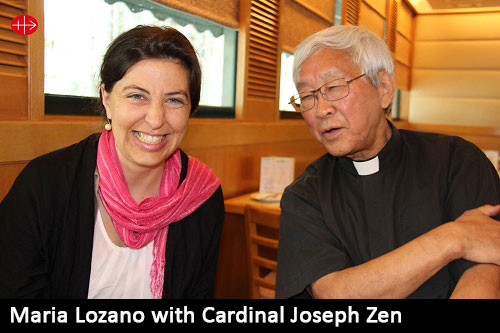CHINA
Will proposed Vatican-China agreement cause problems?
An agreement is being discussed between the Vatican and China regarding the appointing of bishops. Hong Kong’s current archbishop, Cardinal John Tong Hon, has expressed hope that it will come about. Tong defended the new proposal, saying that the Chinese government must now recognize the Pope as the supreme head of the Church and stating that the Pope will still have the final say on the appointment of bishops.
However Cardinal Zen, the Bishop Emeritus of Hong Kong and China’s highest-ranking prelate, is pleading with the Vatican not to “sell out” China’s Catholics by striking a deal with the Communist government.
Currently, the Vatican proposes candidates and the government considers these names, approving some of them. “The Chinese government accepts this compromise instead of having more problems,” said Cardinal Joseph Zen, archbishop emeritus of Hong Kong.
The proposed agreement would essentially allow the Chinese government to select candidates for bishops and the Pope would have the final say of accepting or vetoing the candidates. The problem, Zen believes, is that the government will inevitably meddle in the clergy’s election.
“There is no real election in China,” he said. “The majority of the priests and bishops in the official church may, in their heart, still be very much united with the universal church, but they are under tight control,” he added. The situation “is not changing at all, because the system is already very well established at the national level,” Zen stated.
In contrast to the state-run Chinese Catholic Patriotic Association, the “underground” Catholic Church in China “enjoys a certain amount of freedom.”
The government “tolerates” its underground existence as whole villages may be Catholic and priests say Mass in homes. Nevertheless, priests and bishops in the underground church have faced imprisonment for adhering to the Holy See, rather than submitting to the patriotic church approved by the Communist government.
Cardinal Zen says he has been urged to speak out by Catholics who lack the freedom to speak for themselves. He is concerned that the Pope would be under pressure if he has to repeatedly veto government-appointed candidates. “I would prefer the other way around,” he stated. He also worries that a deal with the Chinese government would damage the Church’s credibility. “How can you allow the initiative of selection of bishops in the hands of an atheistic government and totalitarian government? I want it to start from the Holy See,” Zen said. If the Chinese government can appoint bishops, other governments could expect to do the same.
Zen has good reason to be concerned. The Chinese government does not have a good record of accommodating the Vatican’s past concerns, but rather has shown that it wants to control the church in China. The current General Secretary of the Communist Party of China Xi Jingping is about “tightening control,” he said, and “there is really no foundation for any optimism.”
In 2007, Pope Benedict XVI said that the Catholic Patriotic Association was “incompatible with Catholic doctrine,” and spoke of their interference with the ordination of bishops as a matter he could not permit if he wanted to.
The state has also meddled in the internal affairs of Catholic schools in Hong Kong. “As a church we have full freedom,” Zen commented, “but we have suffered a heavy drawback, which is they have taken away our right of running education. They have changed the law.”
While all schools are state-subsidized, the church under the old plan would “present the management committee” for the schools to the government, usually composed of teachers, parents, and alumni. This committee would be “approved” as a formality. A new law has changed that, he said. Now the Church would recommend only 60 per cent of the management committee and wouldn’t even “have full control” over that percentage. “So there is no guarantee anymore the school would go on according to our vision and mission,” Zen said.
ACN Malta





